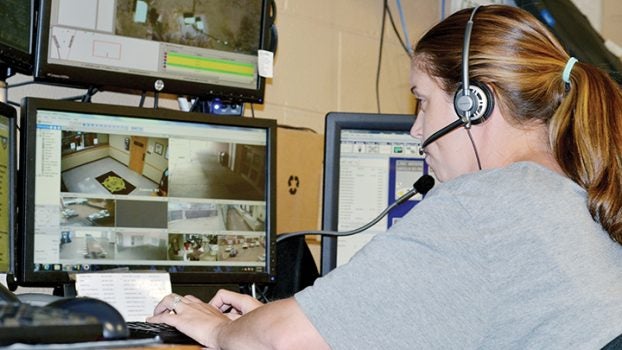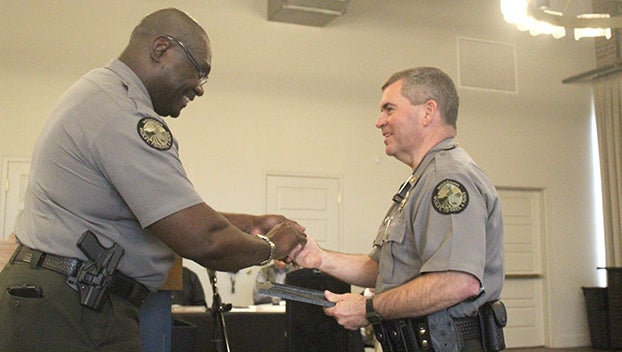Fees do not cover the cost of 911
Published 9:05 pm Thursday, July 5, 2018
Q: What is the 911 charge on monthly phone bills used for?
A: The charge on monthly cellphone bills that says it’s helping fund local 911 systems is only doing half the job, and taxpayers are doing the rest.
Lincoln County Administrator David Fields said only half Lincoln County’s E911 program is funded by the fees, and county supervisors have to kick in the rest from the county’s general fund. And the rest is a lot — Lincoln County’s 911 system takes around $652,000 a year to stay operational, which means taxpayers are contributing a little more than $352,000 annually.
“There’s not a county in the state where those fees will fund the radios, the 911 system, plus the staffing to keep it up,” Fields said. “(911 fees) may have been a little higher at one time when people had a landline and a cellphone, but most people don’t even use landlines anymore.”
Funding for the 911 program is generated through fees on phone bills charging $1 for cellphones and $2 for commercial landlines.
Each month, phone providers send a check to the county dispersing the fees. The money goes to the E911 fund, but it doesn’t completely fund the program. The board of supervisors must make up the rest.
The money pays for equipment, such as radios, headsets and computers. It covers staffing as well, as there has to be dispatchers available to answer all calls around the clock.
Although the funding for the last few years has been steady, the 911 program’s costs have gone up. While raising the fee of the call could help, it won’t completely solve the problem.
In 2017, approximately 80 percent of 911 calls received were from cellular phones, while 16 percent were from wireline phones. The other 4 percent were from either voice-over-internet protocol, multi-line telephone systems or text-to-911.
In the last 20 years, consumer technology has significantly advanced. Many 911 calls now come through cellphone or VOIP technology. While the technology has advanced, the funding models have not evolved as quickly. This leads to challenges in funding traditional 911 systems. Dispatcher equipment must be upgraded to keep up with the changing of consumer technology.
“It’s time to raise those fees,” Fields said. “For us, if it got doubled to $2, then it might get us close. But over time, costs go up and then down the road you’d be looking at it again.”
Every year the Federal Communications Commission submits a report to Congress on the collection and distribution of 911 fees and charges. The report shows an increase in the use of cellular calls and the New Generation Plan.
According to the National 911 Program, Mississippi has adopted a New Generation 911 Plan as of 2017. This means the state has developed a plan that includes governance, funding, system components and operation strategies.
The 911 dispatch office is the only one of its kind in Lincoln County. The office receives all 911 calls made in Brookhaven and the surrounding communities, and the proper emergency services are dispatched when needed.
Story by Gracie Byrne







